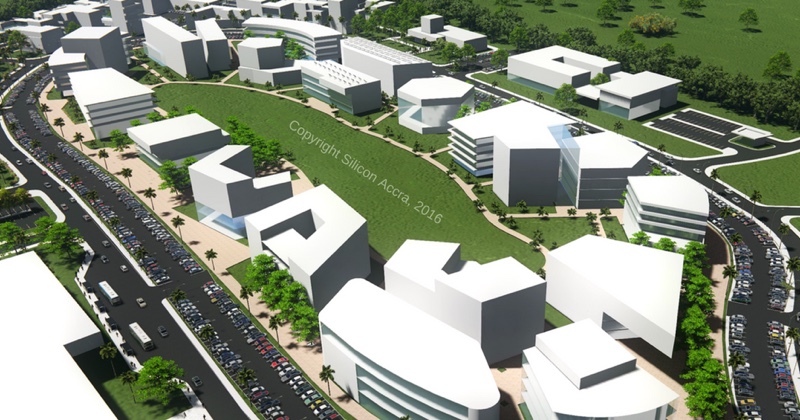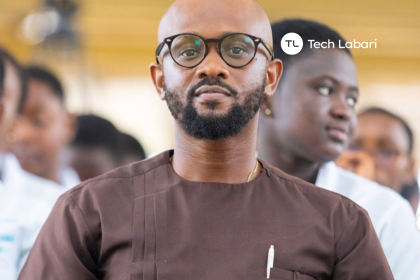In 2017, a development project dubbed “Silicon Accra” was launched. The project was based on the Silicon Valley model in California and was reportedly supposed to be the home to several startups, multi-national organisations, and research institutions.
The Silicon Accra project was to be built in East Legon Hills. This idea was proposed by David Osei, formerly of the acquired company Dropifi.
The Silicon Accra project was estimated to be completed in 2021 with the CEO stating that the project would help create 10,000 jobs.

The project was to be done in two phases with the first phase of the project, consisting of 20,000 offices to serve as a co-working space, 220-unit residential apartments, and $5 million as seed money for investment in Ghanaian and African technology start-ups. The first phase was reported to be ready in two years.
The second phase of the project would allow partners to invest in infrastructure on a 15-acre land that would be leased to them for 49 years at no cost.
Fast forward to 2023 and the project is still ongoing with minimal buzz. Is this a minor setback for the project? Or will it become like most of the other “Silicon Valley” projects which fail to lift off?
The Big Picture
“Silicon Valley” park projects are clusters of high-tech companies and institutions that foster innovation and collaboration. They are usually located near universities or research centers, and benefit from access to talent, infrastructure, and funding.
Some examples of Silicon Valley parks are Route 128 in Boston, Sophia Antipolis in France, and of course, Silicon Valley itself in California.
In recent years, some African countries have tried to emulate this model by creating their own Silicon Valley parks, such as Konza Techno City in Kenya, Yabacon Valley in Nigeria, and Kigali Innovation City in Rwanda.
These parks aim to attract local and foreign investors, entrepreneurs, and researchers, and to create a conducive environment for innovation and growth.
Current Challenges
Ghana had its sights on building a “Silicon Valley” park project. The first project of its kind was called “Hope City” and was officially launched in 2013. But the project failed to materialize due to bureaucratic challenges and funding issues.
Many other similar projects in other African countries are facing their own challenges. Kenya’s Konza Tecnocity is not attracting investors to inject capital into the project long-term.
If You Build, Will They Come?
When it was announced, the Silicon Accra project was estimated to invest $10 million in developing the core infrastructure, including access roads, sustainable energy, water, and fiber-optic lines for fast internet service for the project.
“We are not bearing the total cost that will bring up the city. We are open to companies that will bring up their designs; we vet them to suit our plan and they build,” says David Osei, CEO of Silicon Accra said at a stakeholders meeting.
So far, the African Institute of Mathematical Sciences (AIMS) secured some acres within Silicon Accra to build their West Africa campus.

But will more institutes follow suit?
Google currently has its Artificial Intelligence (AI) office premises in the city. Other multinationals including Microsoft, IBM, and others have all established offices in Accra.
Will other multinationals and local tech companies invest in Silicon Accra for office space or simply just rent out office spaces within the city?
Where Are We Now
Currently, Silicon Accra still looks like a work in progress even though it was said to be “complete” in 2021. But “complete” might be semantics and might mean finalizing land acquisition rather than the building of office spaces.
But so far, there doesn’t seem to be more attention from multinational companies or local tech companies to build in Silicon Accra, with most opting for office space in the inner city.
So will Silicon Accra eventually live out the dream of establishing office spaces for tech workers and turn into a “Silicon Valley” like center? That remains to be seen.
Silicon Accra is not a failed project by any means. But it might take a bit longer for the promise of fully built technology tech centers in African cities to be a concrete reality.
Catch up on news and other tidbits on our WhatsApp Community Page, Twitter/X, and subscribe to our weekly newsletter to ensure you don’t miss out on any news.









